Publications
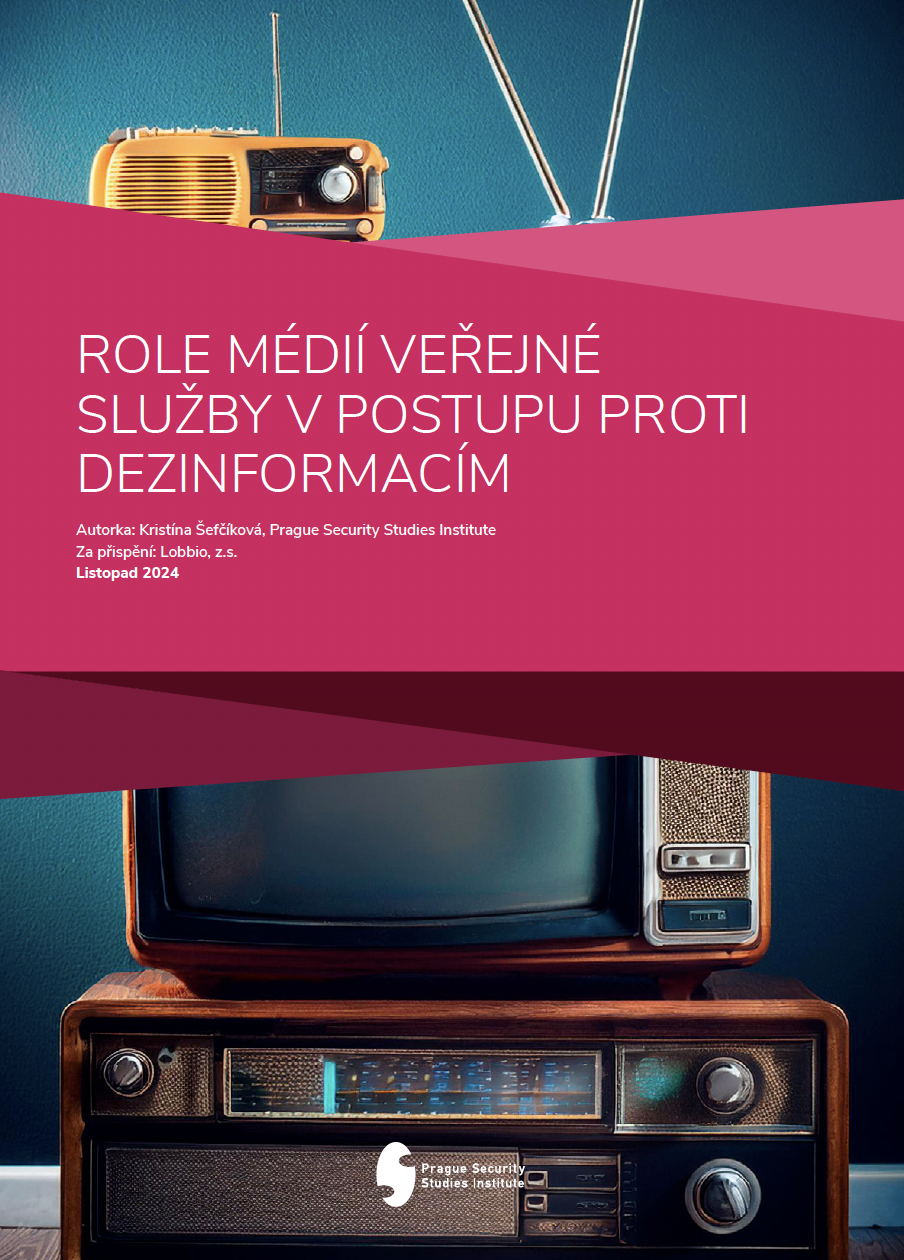
Information Resilience Program // Kristína Šefčíková, Prague Security Studies Institute / 26 Nov 2024
Role médií veřejné služby v postupu proti dezinformacím
Prague Security Studies Institute (PSSI) se spojil s experty na advokační činnost ze spolku Lobbio s cílem otevřít debatu o tom, jak by média veřejné služby měla plnit svůj potenciálně nový citlivý úkol související s návrhem nového § 2 odst. 2 v novele zákona o České televizi (obdobně také zákona o Českém rozhlasu), podle kterého mají být česká média veřejné služby oficiálně pověřena bojem proti dezinformacím.
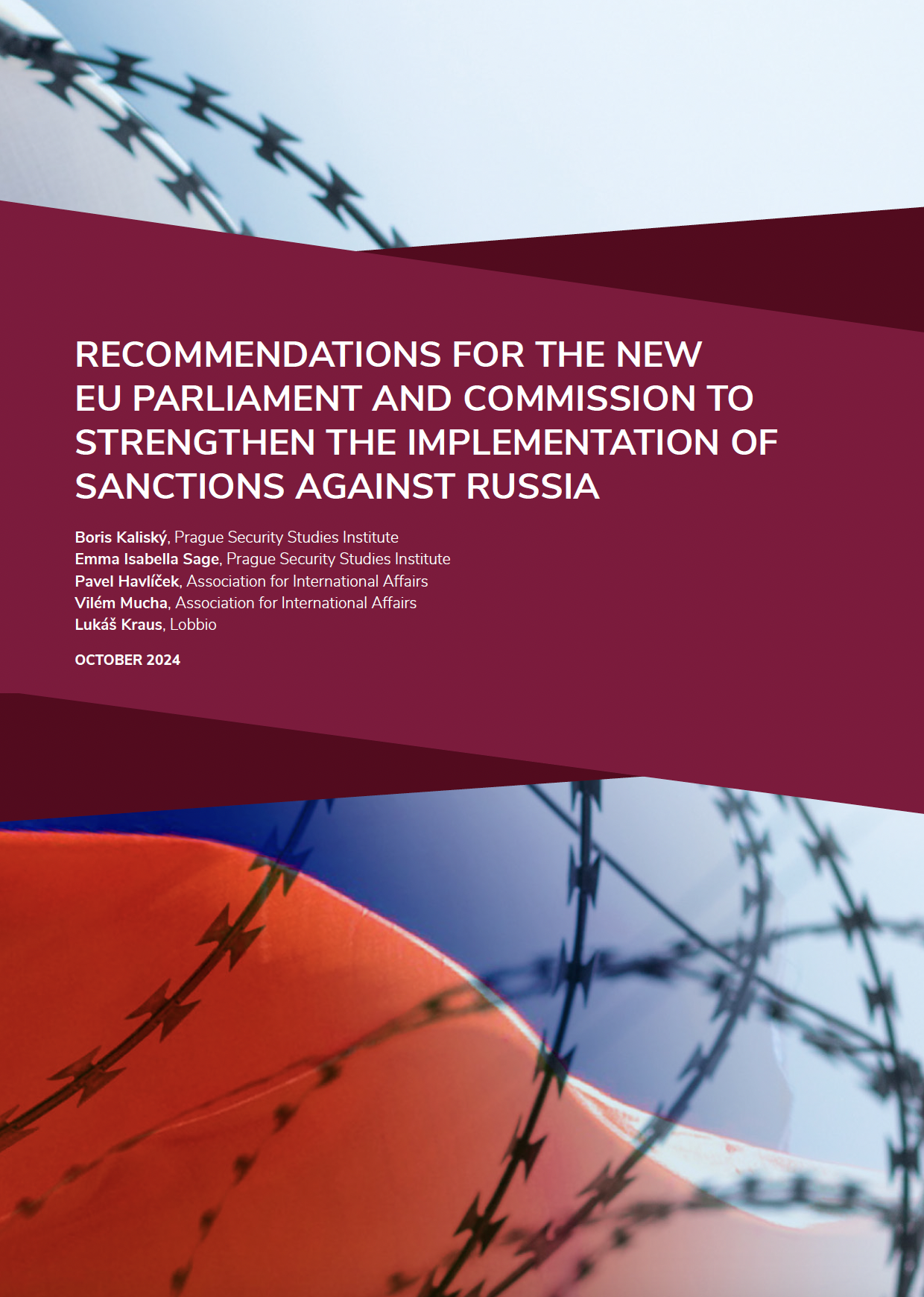
Economic & Financial Statecraft Program // Boris Kalisky (PSSI), Emma Isabella Sage (PSSI), Vilém Mucha (Association for International Affairs, AMO), Lukáš Kraus (Lobbio) / 30 Oct 2024
Recommendations for the New EU Parliament and Commission to Strengthen the Implementation of Sanctions Against Russia
The European Union is at a crucial moment in the enforcement of sanctions against Russia. While military and financial support for Ukraine remains paramount, sanctions are an effective tool to hinder and disrupt Russian military operations. Our inter-organizational task force has issued this new report, containing concrete recommendations for EU institutions to strengthen the implementation of anti-Russian sanctions.
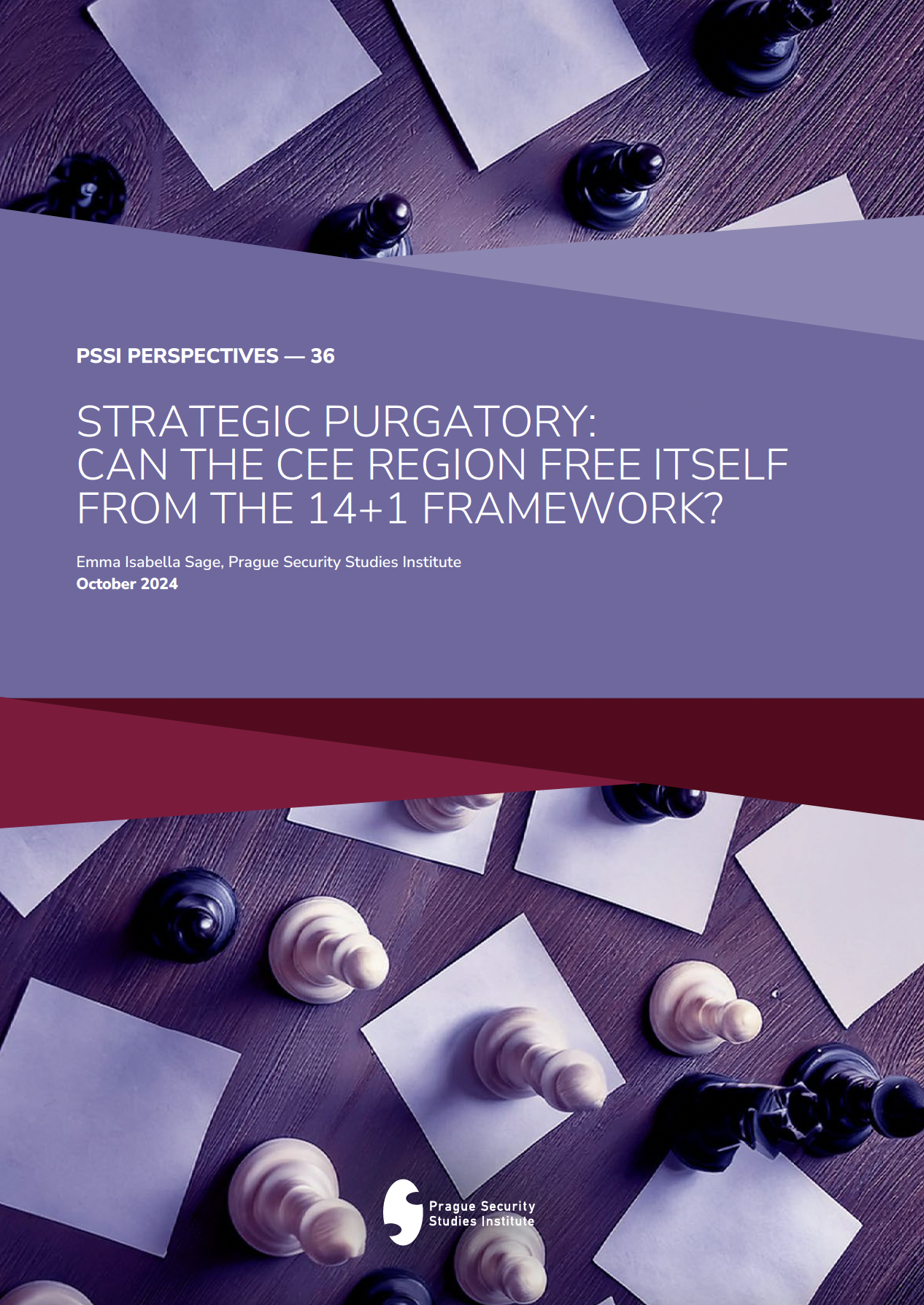
Economic & Financial Statecraft Program // Emma Isabella Sage / 21 Oct 2024
PSSI Perspective #36: Strategic Purgatory: Can the CEE Region Free Itself from the 14+1 Framework?
While much attention has been given to Chinese investments in developing countries, less focus has been placed on China's growing presence in NATO-aligned Central and Eastern European (CEE) countries. As China strengthens its partnership with Russia amidst the war in Ukraine, the region’s relationship with China has come under increasing scrutiny.
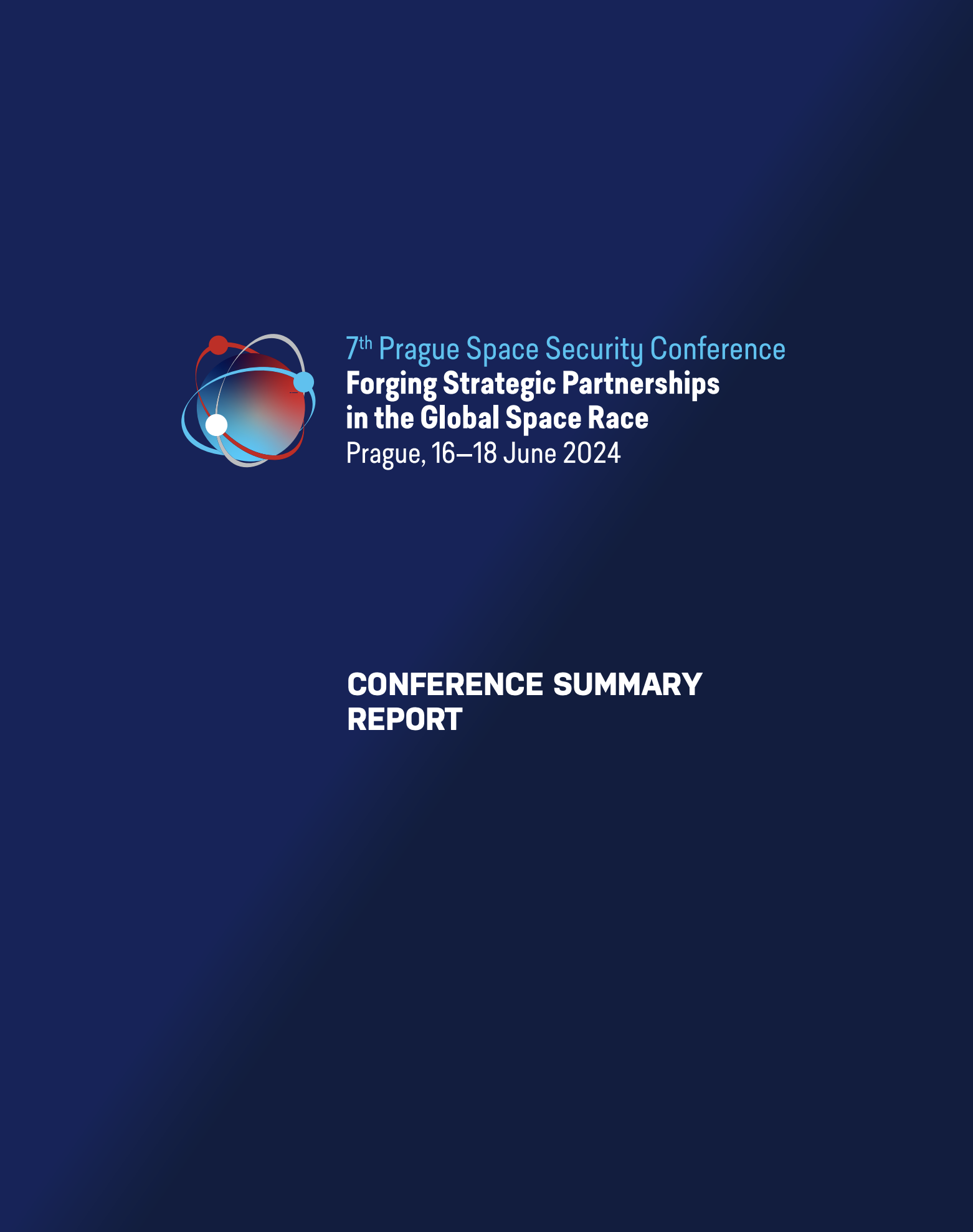
Space Security Program // PSSI / 15 Oct 2024
7th Prague Space Security Conference Summary Report
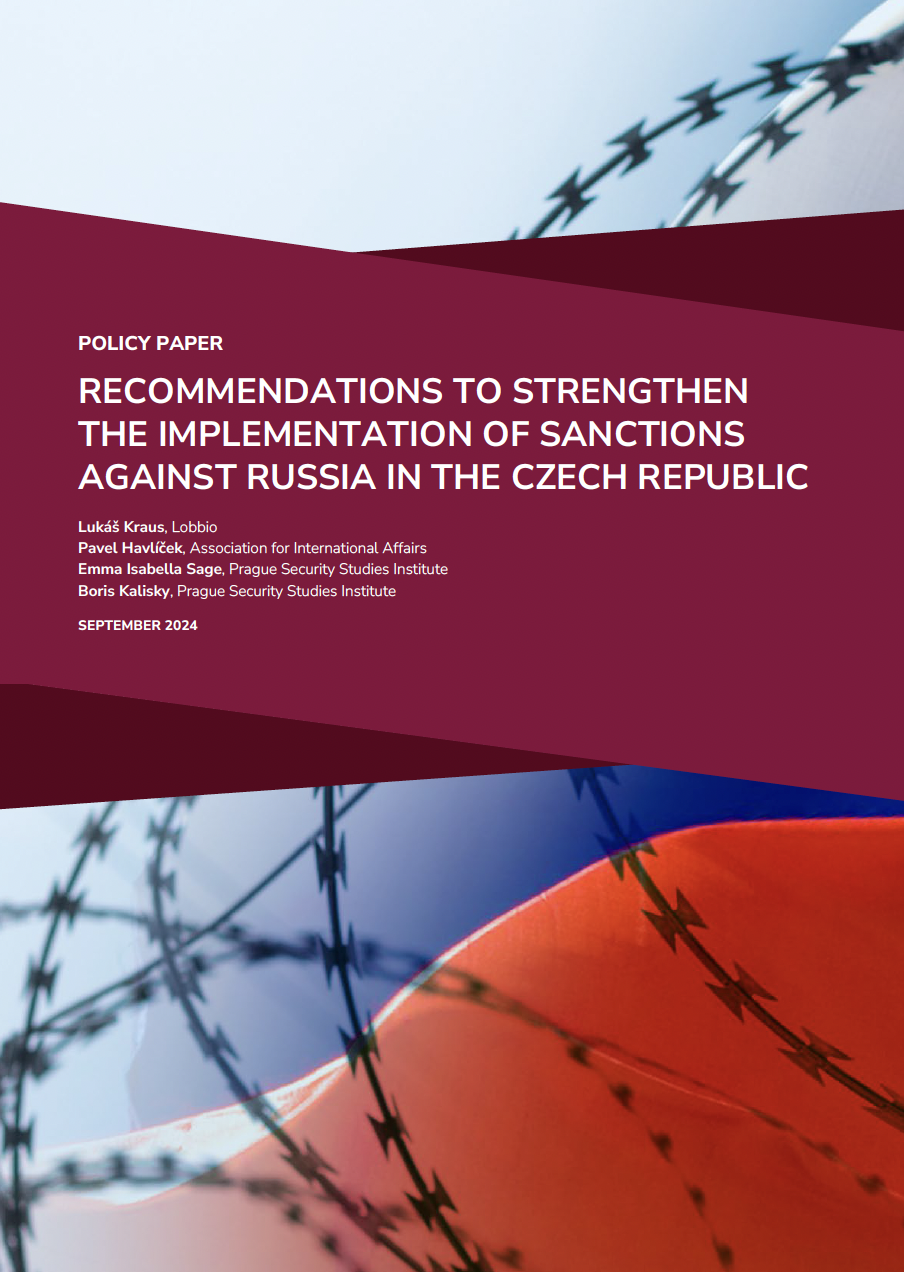
Economic & Financial Statecraft Program // Lukáš Kraus (Lobbio), Pavel Havlíček (Association for International Affairs, AMO) Emma Isabella Sage (PSSI) Boris Kalisky (PSSI) / 30 Sep 2024
Policy Paper: Recommendations to Strengthen the Implementation of Sanctions against Russia in the Czech Republic
The Czech Republic is one of the most active supporters of Ukraine in terms of direct military support, provision of protection to Ukraine citizens or by leading the widely-respected ammunition initiative announced in February 2024. The Czech government has also profiled itself within the EU by supporting tough sanctions against Russia. Still, there are several options available for the current administration to strengthen the implementation of sanctions through legislative and non-legislative measures.
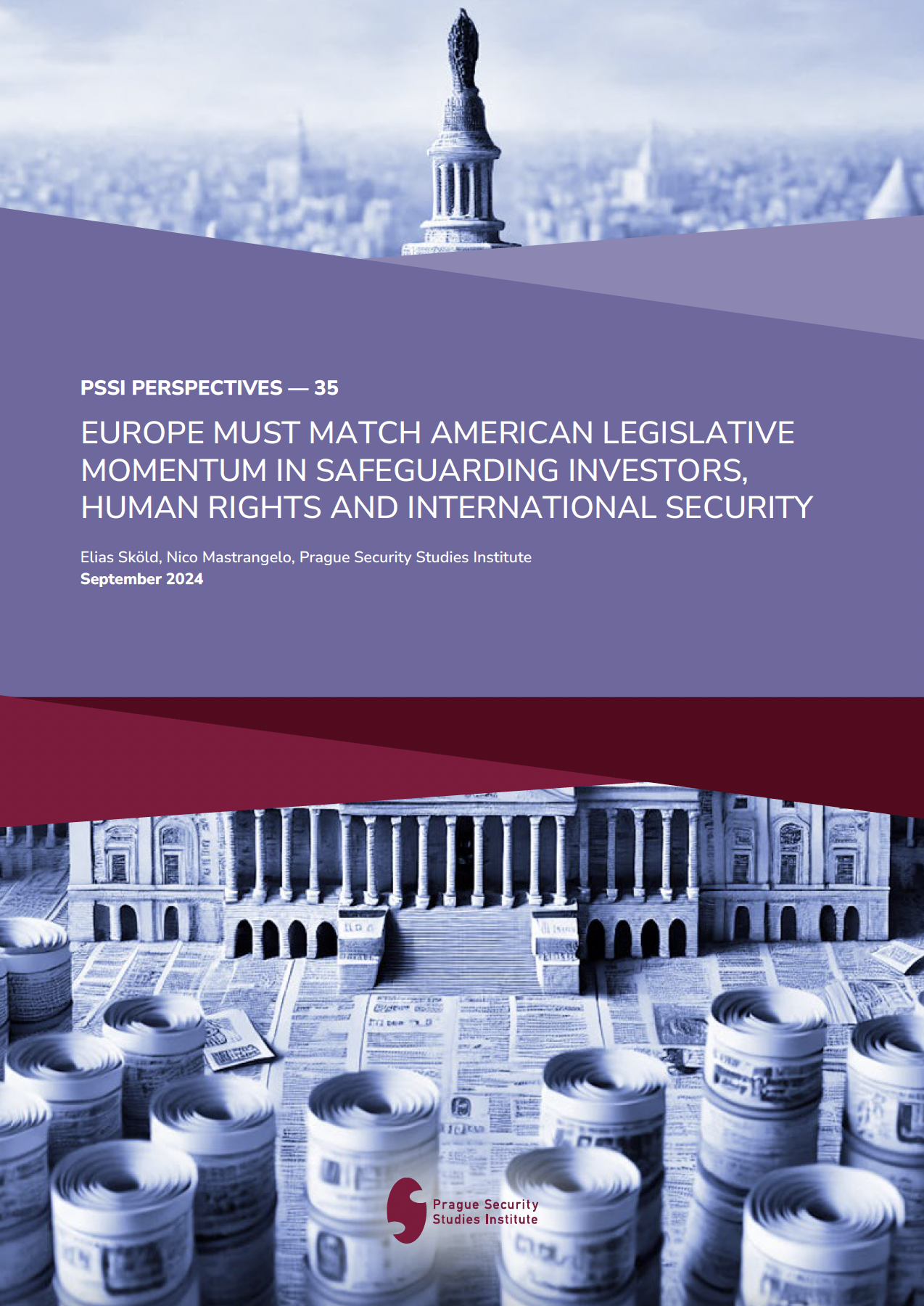
Economic & Financial Statecraft Program // Elias Sköld, Nico Mastrangelo / 27 Sep 2024
PSSI Perspective #35: Europe Must Match American Legislative Momentum in Safeguarding Investors, Human Rights and International Security
Following a flurry of proposed legislation in the U.S. Congress addressing the risks associated with investments linked to authoritarian states, PSSI’s latest Perspective urges Europe to emulate or match these measures. The report emphasizes the geopolitical importance of managing capital flows to avoid inadvertently supporting undemocratic regimes and associated corporate bad actors, through highlighting ten such legislative proposals in particular.
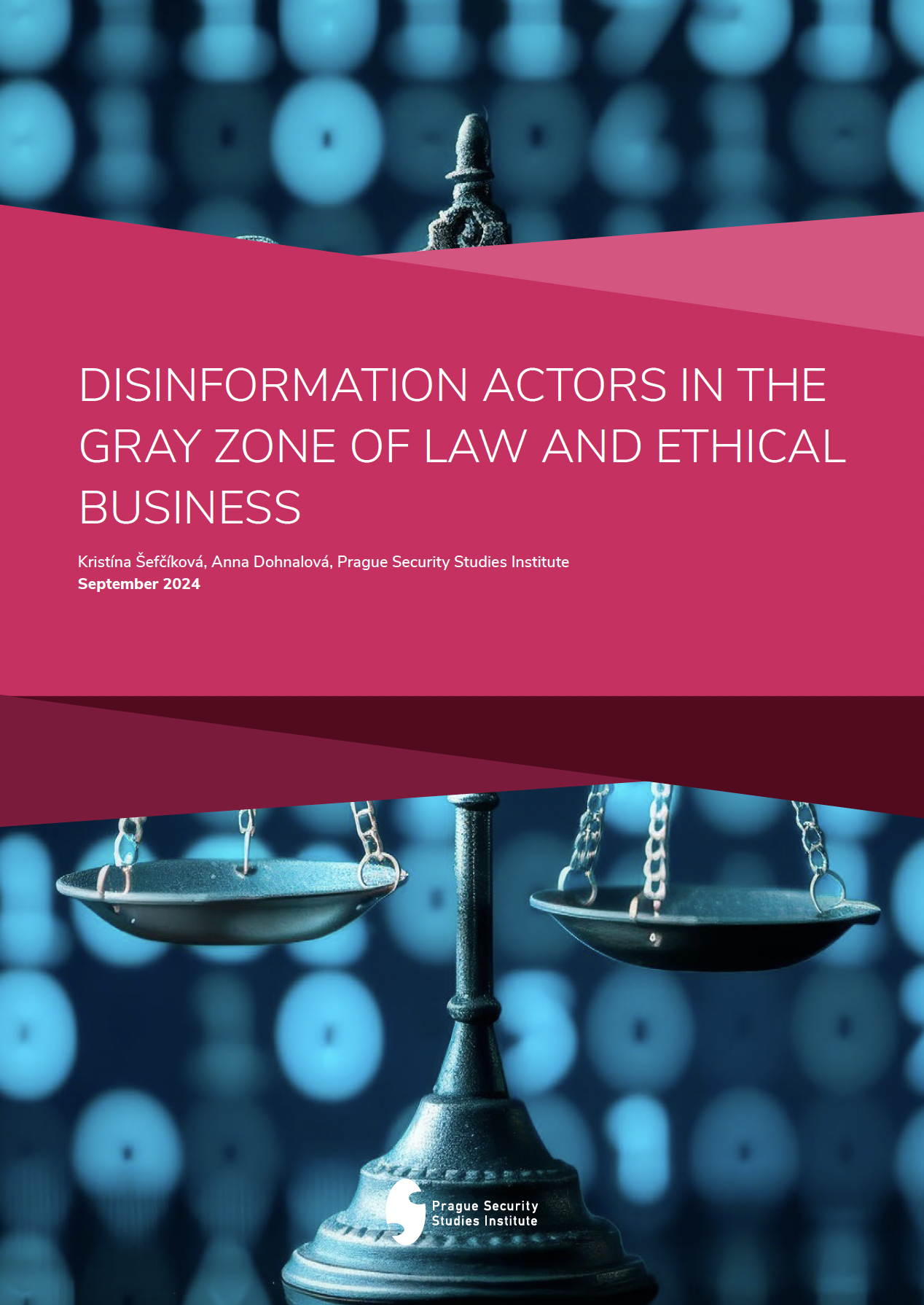
Information Resilience Program // Kristína Šefčíková, Anna Dohnalová, Prague Security Studies Institute / 27 Sep 2024
Disinformation Actors in the Gray Zone of Law and Ethical Business
Problematic content such as disinformation is difficult to address in a legal space where such content is not defined. However, as this publication shows, the creators of this content generally tend to operate in the gray zone of law and ethical business, and therefore their reach and profit can be limited by the traditional legal and regulatory tools already available.
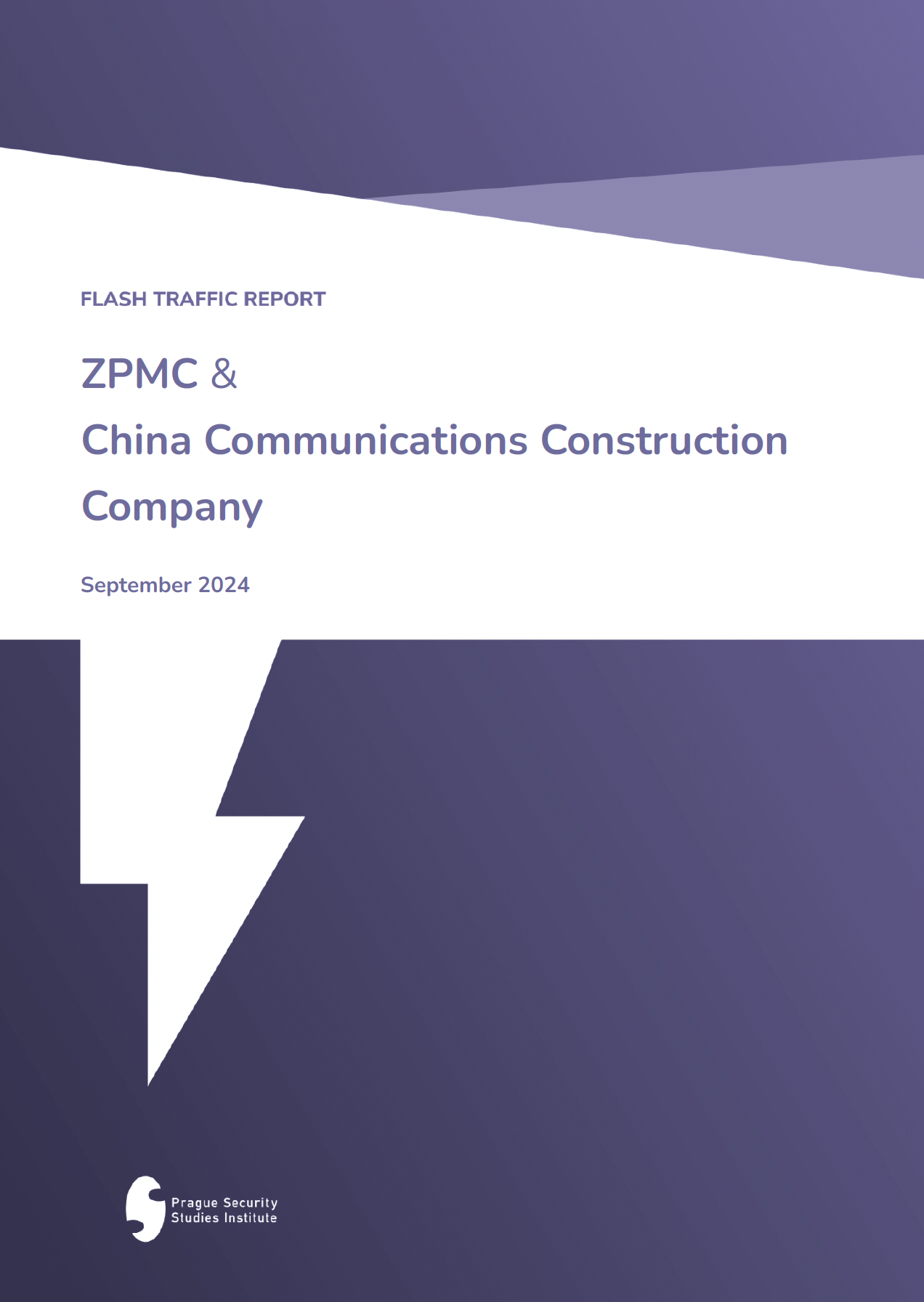
Economic & Financial Statecraft Program // PSSI / 23 Sep 2024
Flash Traffic Report: ZPMC & China Communications Construction Company
Given the recent U.S. Congressional report on the acute national and economic security threats posed by the crane manufacturer ZPMC, PSSI has issued a Flash Traffic report recommending capital markets sanctions against both ZPMC itself (SS.600320) and its parent company CCCC (HK.1800, SS.601800).

Information Resilience Program // Anna Dohnalová, Kristína Šefčíková, Prague Security Studies Institute / 11 Jul 2024
Jak nefinancovat dezinformace na video platformách?
Video obsah se stává stále populárnějším zdrojem informací a jeho objem v informačním prostředí roste. Lákavost audiovizuálního obsahu si uvědomují i tvůrci problematického obsahu, včetně těch, kteří dlouhodobě a systematicky šíří dezinformace. Jejich aktivita na platformách jako YouTube roste a s tím i jejich sledovanost, která dosahuje desetitisíce až sto tisíc sledovatelů. Kromě platformy pro rozšíření dosahu jim YouTube slouží jako monetizační platforma, ať už pomocí reklam, členských poplatků nebo finančních darů.
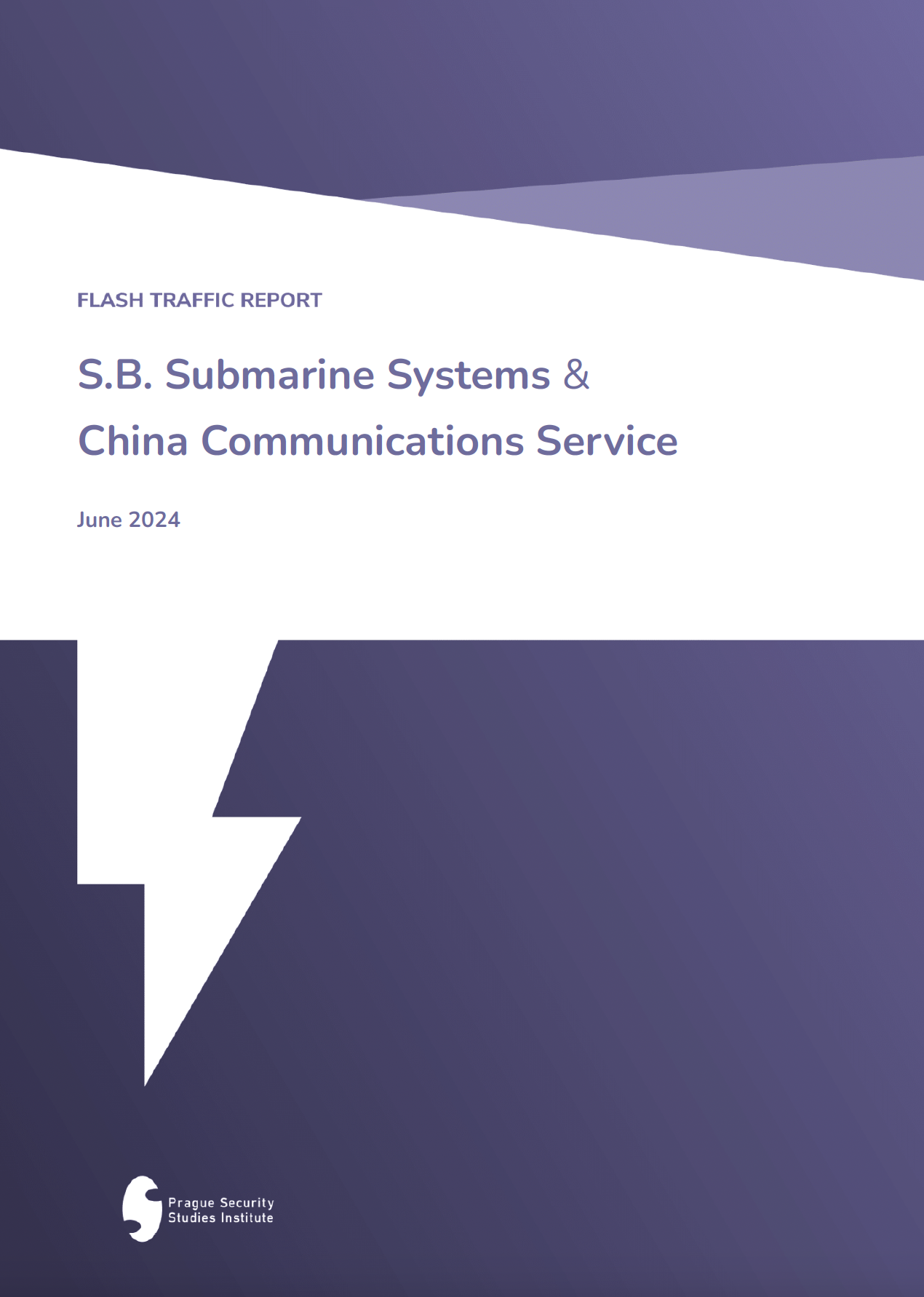
Economic & Financial Statecraft Program // PSSI / 10 Jun 2024
Flash Traffic Report: S.B. Submarine Systems & China Communications Service
Given the recent revelation that S.B. Submarine Systems, China’s leading subsea cable installer, has been flagged by U.S. officials as presenting acute security risks, PSSI has issued a Flash Traffic report recommending capital markets sanctions against its parent company, China Communications Services (HK.0552).